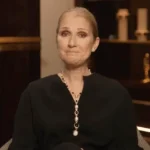
LifeHubber Team
Tucker Carlson’s recent interview with Russian President Vladimir Putin has captured global attention, marking a significant moment as Putin’s first formal dialogue with a Western journalist since the commencement of the Ukraine invasion nearly two years ago. He paid for his flight to Moscow, aiming to present an unfiltered view of Russia’s stance on the ongoing conflict in Ukraine, NATO expansion, and its strained relations with the West.
Carlson, a figure known for his conservative viewpoints and critique of mainstream media’s coverage of the Ukraine-Russia war, sought to challenge the narrative by offering a platform to the Russian leader and felt that “Americans have a right to know all they can about a war they are implicated in”. The interview’s timing coincides with heightened tensions and discussions regarding U.S. military funding to Ukraine, adding layers to its relevance and the controversies it sparked.

Public and Political Reactions: A Polarized Reception
The interview has as expected, elicited a wide range of reactions, from outright condemnation to support for journalistic freedom.
Critics argue that offering Putin such a platform enables the Russian leader to justify his actions in Ukraine without critical scrutiny. And that it may potentially distort the narrative around the war’s brutal realities. High-profile figures and journalists have voiced concerns over the ethics of conducting and disseminating the interview, highlighting the ongoing challenges faced by Russian and foreign journalists under Putin’s regime.
On the other side of the fence, are supporters of Carlson who argue that the interview embodies the principle of free speech. It advocates for a diverse spectrum of viewpoints to be heard, regardless of the political or ideological implications. This debate underscores the complex interplay between journalistic freedom, political propaganda, and the ethical considerations of giving voice to controversial figures on global platforms.
Who is Tucker Carlson?
Tucker Carlson is a prominent conservative commentator and former host for Fox News, where he gained fame for his outspoken opinions on political and social issues. His career has been marked by controversy, often sparking debate for his views on immigration, climate change, and the media’s role in politics. Carlson’s move to conduct an interview with Putin further cements his position as a polarizing figure willing to challenge the mainstream narrative and engage with contentious global leaders.
Hubbers’ Takeaway
This interview and the surrounding controversies offer us an opportunity to reflect on the nuances of international politics, media ethics, and the power dynamics at play in global conflicts. It serves as a reminder of the importance of critically evaluating the sources and perspectives that shape our understanding of world events. For those seeking to grasp the intricacies of the Ukraine conflict and the geopolitical tensions it entails, Carlson’s interview with Putin provides a contentious but crucial viewpoint that challenges conventional narratives and encourages a deeper inquiry into the motives and implications of global actors.
Watch the interview here:
You May Be Interested:
 The Noah Schnapp Saga: How a Young Actor’s Controversial Stance Shook the Entertainment World
The Noah Schnapp Saga: How a Young Actor’s Controversial Stance Shook the Entertainment World
 Celine Dion’s Harrowing Struggle with Stiff-Person Syndrome: Sister Reveals Loss of Muscle Control
Celine Dion’s Harrowing Struggle with Stiff-Person Syndrome: Sister Reveals Loss of Muscle Control
 Cher’s Conservatorship Battle Over Son Elijah: A Tale of Love, Addiction, and Legal Drama
Cher’s Conservatorship Battle Over Son Elijah: A Tale of Love, Addiction, and Legal Drama
 The Real-Life Gone Girl: Unmasking the Truth in Netflix’s American Nightmare
The Real-Life Gone Girl: Unmasking the Truth in Netflix’s American Nightmare
